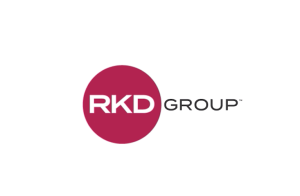The ALS Association received the largest single gift in its history — $58 million — from the estate of the late philanthropist Hugh Hoffman. He was a Cincinnati native who died in March 2023 at age 91.
When he was 11, Hoffman lost his father, Herbert, to ALS, which is still a fatal disease without a cure. “Uncle Hugh hoped that his gift would provide an immediate boost of hope for people living with ALS and their families,” Bert Bullock, one of Hoffman’s nephews, said via a statement. “This gift is a powerful testament to who he was and represents our family’s way of championing his legacy.”
Hoffman’s gift is designated to advancing promising ALS therapies, developing new or strengthening existing ALS clinics, and enhancing access to ALS care for people living with ALS.
“We are deeply grateful to Hugh Hoffman and his family,” ALS Association President and CEO Calaneet Balas said via a statement. “His gift is a beacon of hope for the thousands of people living with ALS and their loved ones, and all those who will be diagnosed in the future. It will provide tangible impacts that advance our goal of making ALS livable until it is cured.”
Balas and her team met several times with Hoffman to gain insights into his drive and passion for curing ALS and supporting people living with ALS. Hoffman reached out to the ALS Association. Balas and her team met with him at his home in Cincinnati, as well as his favorite local diner, according to an ALS spokesperson.
Hoffman graduated from Yale University and became a successful stockbroker and investment advisor. Throughout his life, and upon his death, he made several transformational donations, including to the ALS Association, the University of Cincinnati and the Cincinnati Zoo & Botanical Garden.
“Our Uncle Hugh was an incredibly generous, kind man of great integrity who wanted to give back,” said Steve Bullock, one of Hoffman’s nephews. “He lived a modest life, which enabled him to make truly transformative donations after his death. His generosity speaks volumes about the sort of person he was.”
Hoffman’s $58 million gift to the ALS Association is believed to be the largest single philanthropic gift made to an ALS organization and represents slightly more than half of the money raised by the global phenomenon known as the Ice Bucket Challenge. During the summer of 2014, the ALS Association raised $115 million from 2.5 million donors. The ALS Association used these gifts to significantly accelerate the fight against ALS, including funding the discovery of new ALS treatments, expanding ALS care, and creating several global research projects.
“We saw how the ALS Association was able to leverage the Ice Bucket Challenge donations and provide tangible impacts for people living with ALS,” said Steve Bullock via a statement. “We believe Hugh’s gift provides a giant step forward toward the ALS Association’s goal of making ALS livable for everyone, everywhere, until there is a cure.”
The Hugh and Herbert Hoffman ALS Fund will go toward new treatments, as well as improving ALS clinics and increasing patient access. It will specifically fund three programs in the areas of ALS research and care:
- The Hoffman ALS Clinical Trial Awards Program: This program will help to develop new and improved therapies by supporting early-stage clinical trials. It is expected to fund two or three additional ALS clinical trials per year, ultimately totaling 20 to 30 new ALS clinical trials during 10 years.
- The Hoffman ALS Clinic Development Awards Program: This program will support the development of new ALS Certified or Recognized Treatment Centers, as well as elevate existing clinics to Certified or Recognized Treatment Center status. It is expected to develop eight brand new clinics and significantly elevate the services of four existing clinics during the next 10 years.
- The Hoffman ALS Patient Care Expansion Awards Program: This program will enhance ALS patient access to multidisciplinary care by funding additional ALS clinic days, increasing access to telehealth services and reducing financial barriers to care. During a 10-year period, this program is expected to provide 60 grants to ALS clinics and 3,000 grants to individuals living with ALS who are experiencing financial barriers to accessing multidisciplinary care.
Amyotrophic lateral sclerosis (ALS) is a progressive neurodegenerative disease that affects nerve cells in the brain and spinal cord. Over the course of the disease, people lose the ability to move, to speak, and eventually, to breathe. On average, it takes about a year before a final ALS diagnosis is made. The disease is always fatal, usually within five years of diagnosis. There is currently no cure.
For more information about the ALS Association, visit our website at www.als.org.









